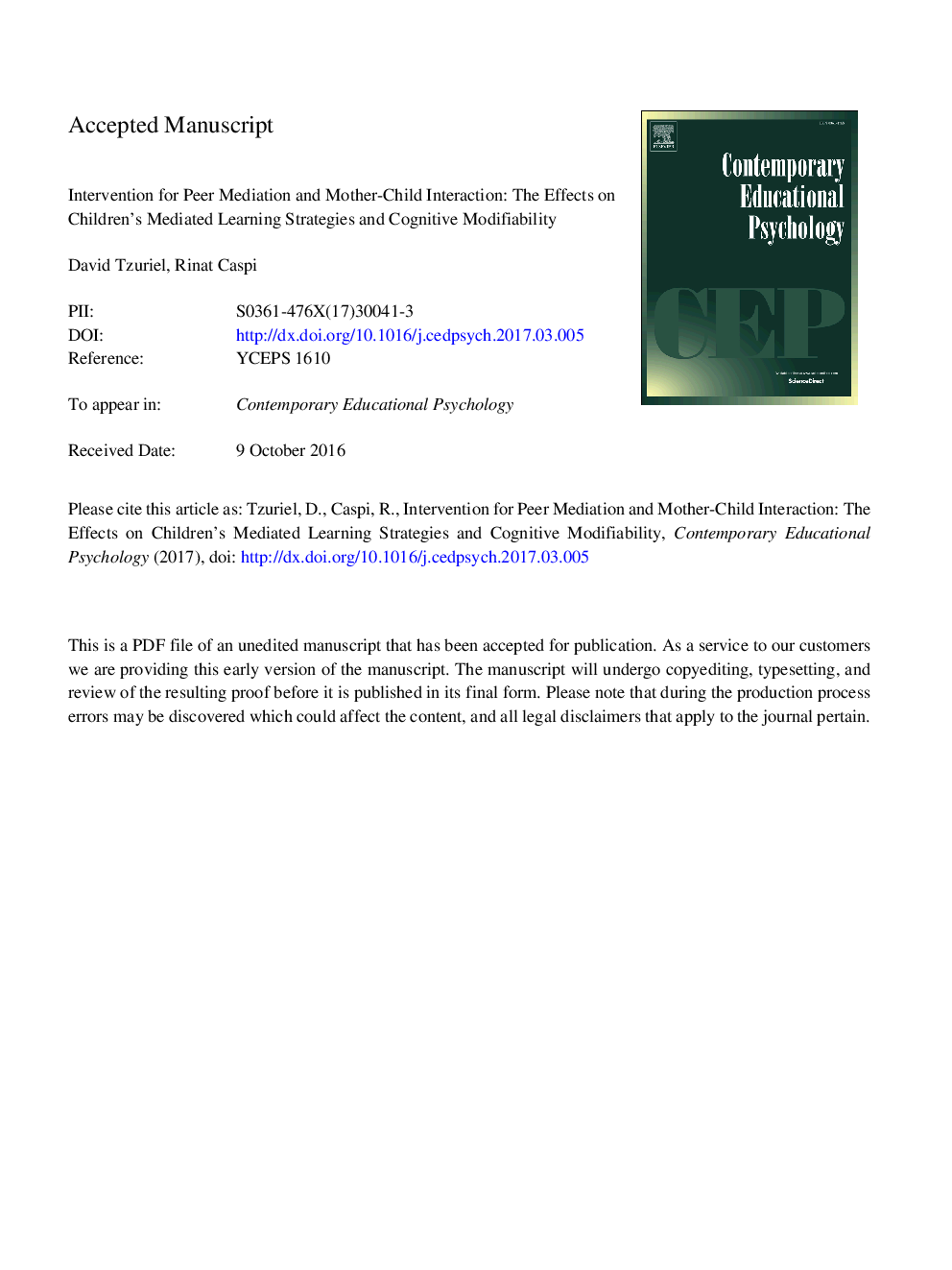ترجمه فارسی عنوان مقاله
مداخله برای میانجیگری همکار و تعامل مادر و کودک: اثرات بر راهبردهای یادگیری کودکان و نوجوانان و تغییر پذیری شناختی
عنوان انگلیسی
Intervention for peer mediation and mother-child interaction: The effects on childrenâs mediated learning strategies and cognitive modifiability
| کد مقاله | سال انتشار | تعداد صفحات مقاله انگلیسی |
|---|---|---|
| 133679 | 2017 | 72 صفحه PDF |
منبع

Publisher : Elsevier - Science Direct (الزویر - ساینس دایرکت)
Journal : Contemporary Educational Psychology, Volume 49, April 2017, Pages 302-323
ترجمه کلمات کلیدی
استراتژی های یادگیری متمرکز، میانجیگری همکار، تغییرپذیری شناختی، ارزیابی پویا، برنامه ریزی، خود تنظیم
کلمات کلیدی انگلیسی
Mediated learning strategies; Peer-mediation; Cognitive modifiability; Dynamic assessment; Planning; Self-regulation;

